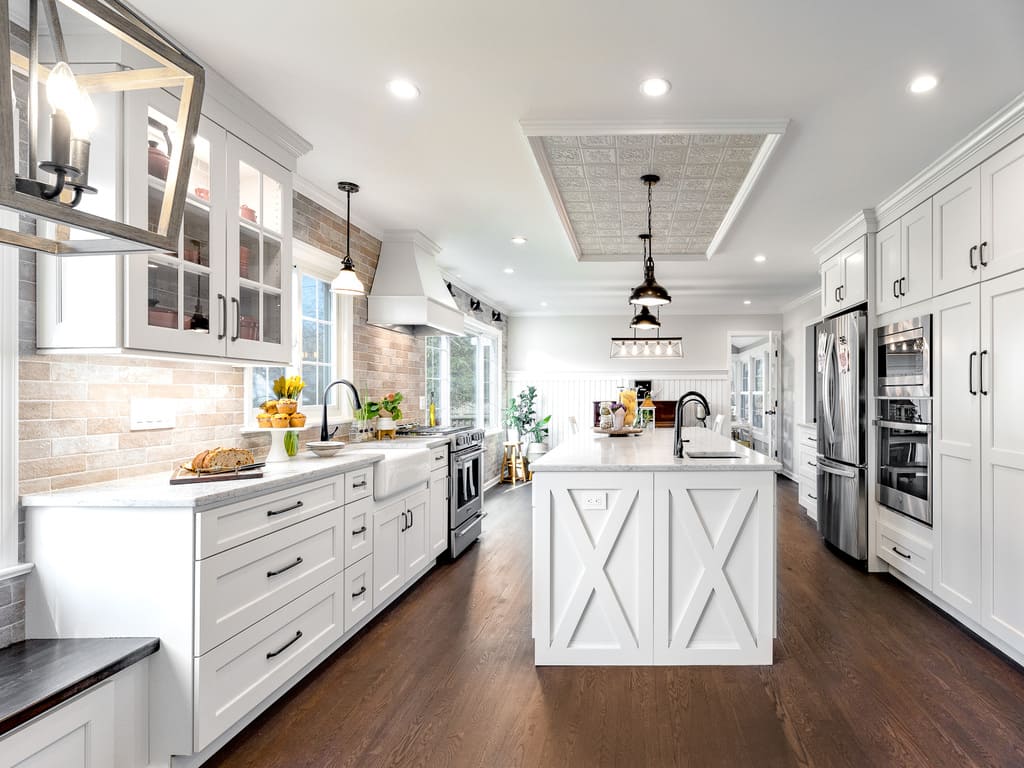Knowing the legal complications is necessary when buying a property with a partner. You must choose the right ownership method. It must protect your rights and interests. Know things like – if one of the two dies, the property gets transferred to the other person automatically. You don’t need any legal procession for that.
Moreover, if unmarried, you share a few rights in comparison to married ones. For example- if you live in your partner’s home and you split up, you get nothing. It is even if you contributed some towards the mortgage. Knowing such aspects helps set realistic homeownership goals as a couple. Be practical about every stage of home purchase. The blog lists the best ways to set financial goals for owning a home as a couple. It will help married and unmarried ones climb up the property ladder.
How does Joint home ownership work?
You can usually buy a home with your partner in two forms:
- Joint Tenants
- Tenants in common
Joint tenants own the property by contributing equally towards the mortgage and home-buying costs. It means you share equal rights over the property. If one of you dies, the property automatically transfers to the other person. However, you cannot leave your share in the will.
Alternatively, you own a specific share in tenants in a common agreement. Unlike joint tenants, it need not be an equal share. Instead, it depends on the purchasing power of the two. Anyone of the two can hold a higher share. However, you can list your property share in the will. Thus, write a will after owning the house as tenants in common. It is a must-have thing to do. Otherwise, you may be in trouble if the other person claims an unrealistic share. It could be possible after a rift or divorce.
Thus, sign a declaration of trust when buying property in common. It lists the solution to the worst consequences. Moreover, it prevents you from losing your share if someone else claims the other person’s share. He may want to sell off the property.
When should you choose a joint tenant’s agreement?
A joint tenant agreement is usually ideal for married ones. It helps the property owners avoid probate. A spouse must wait for the partner’s last will without the agreement. It may take years or months to make the decision. Here are some signs that joint tenancy may be right for you:
- You want to split the purchase costs equally
- Want equal share or dominance if they split
- Can pay the mortgage dues if the partner cannot
- Want to split the profit share equally from the sale or renting the property
Here, the individuals struggle the most with the additional costs. The third point requires one to lead the mortgage payments. You cannot do anything but pay the partner’s share. Identify the amount you need more to bridge the share. Ask the better half if she could dedicate some savings.
If not, check verified instalment loans in the UK from direct lenders only for a reason. The facility helps counter the cash need without affecting the mortgage. Moreover, contacting direct lenders instead of brokers prevents you from paying extra fees. Instead, it grants you the privacy of sharing the financial information only with a lender instead of multiple.
When are tenants in common the best fetch?
Tenants in common share the right to give their part to someone else. The other person may sell or keep the property as per the will. You can consider the tenants in common option if:
- You can choose the person who will inherit your share
- You want to own a higher share of the property
- You want to protect your property share if your partner remarries
- Own the freedom to sell or mortgage the share without consulting the partner.
Tenants in common lack the facility of right of survivorship. It means the property is not transferred to the other person’s name should the owner die. Instead, the rights go to the third person. He is generally the relative of the deceased. Thus, you may create a will to whom you want to transfer the property.
The basics of planning to buy a property as a couple
By now, you know joint tenancy and tenancy in common. You can choose between the two according to your needs and comfort. However, planning hosts the base of the home purchase. Whatever the decision, you must know a few basics.
1) Identify an ideal property
The property should be according to the favourable location, size, facilities, and preference. It should meet the individual or couple goals. Identify your and your partner’s requirements. Prepare a list and scan through the best properties available. Check for the new ones on the sale. You may list your requirements on different online portals. The owner may contact you for the details. It will help you shortlist the ideal property.
2) Compare the costs and mortgage rates
You may find multiple properties that fit your preference. Identify the costs and compare the best ones. You may find similar properties at low rates, too. However, authenticate the seller before approaching. You can read the reviews or consult someone who is known. He may help you find the best person to contact.
Next, identify the mortgage rates. You may need one to bridge the purchase costs. No one holds a lump sum. Check the best mortgage interest rates. Identify the ways to lower the costs further. It will help you know the approximate you need to pay on the mortgage.
3) Set a budget and a timeline
Now you know the property and the mortgage you may get. Thus, the payments and deposits are planned. Check the best ways to save for a higher deposit. You can discuss the contributions with your partner. The higher the deposit, the lower the interest and payments. Thus, it is possible for you both to earn well. Save a portion of your earnings towards mortgage payments and deposits.
For example- you can try to save at least £45000 within 6 months for each person. It will help cover the deposit, and you can use the rest to carry out mortgage payments. Set the timeline for applying for the mortgage. It entirely depends on your speed and financial circumstances. Individuals with good savings can save for deposits quickly rather than living from paycheck to paycheck.
4) Know your mortgage responsibilities
Clarity on mortgage agreements is important. It helps both individuals know their commitments. Check whether your partner is ready for the same. You can split the costs equally for equal ownership. It is when you want to avoid conflicts. Verified joint unsecured loans may help you deal with small cash hiccups. For example, you both don’t want to release an excessive portion towards urgent expenses. Thus, get a joint loan to split one. It reduces the pressure on the other person.
Moreover, it does not affect the mortgage payments much. It is better than managing every big expense single-handedly. Yes, you can manage this small loan with a mortgage easily.
5) Know your legal rights
One must understand the legal rights before entering the joint agreement. It is especially important for unmarried couples. If struggling, consult an expert to know one. It will help ensure transparency in the agreement. The decision won’t come as a surprise then.
Bottom line
These are some strict actions you must take to buy a home as a couple. Understand the difference between joint tenancy and tenants in common. It helps you decide the best mode to buy a home as a couple. Compare the property rates, mortgage rates and credit requirements.
Plan the purchase with your partner accordingly. Explore the best ways to fetch low interest rates. Each person should know their mortgage responsibilities. It will help you avoid a strained relationship.














